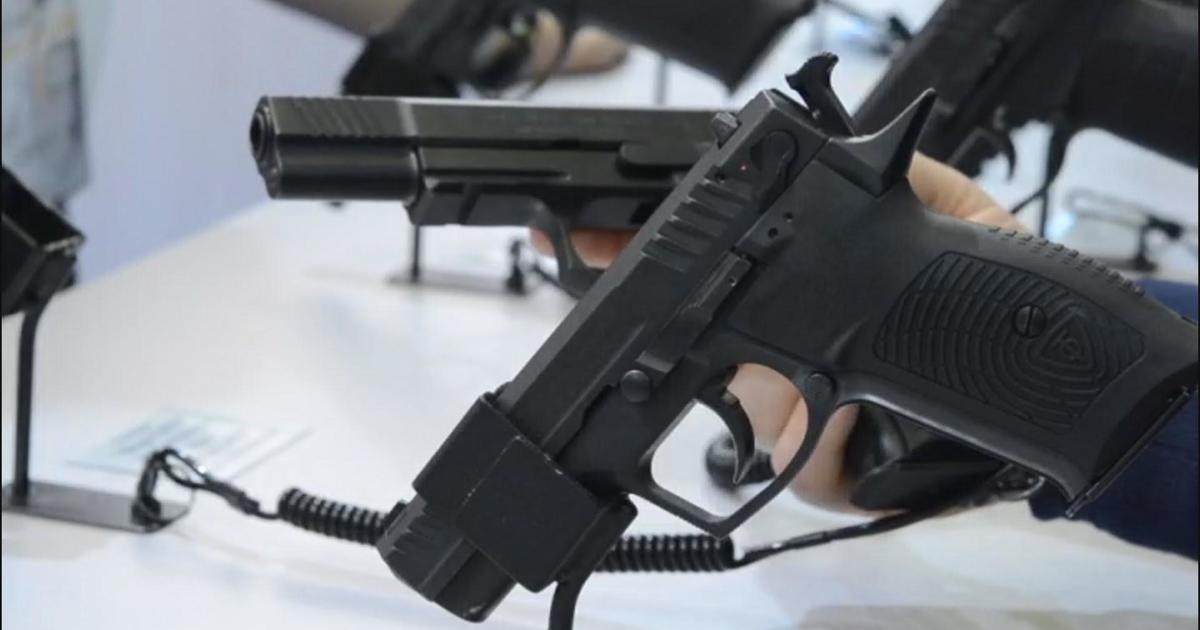Rethinking Gun Sales: The ATF’s Call for a Fresh Look at Reselling Used Firearms
The Bureau of Alcohol, Tobacco, Firearms and Explosives (ATF) has recently issued a significant appeal to law enforcement agencies across the United States, urging them to reassess their policies and practices regarding the resale of used firearms. This initiative comes in light of growing concerns over public safety, accountability, and the regulatory framework that governs gun ownership. With gun violence continuing to be a pressing issue in American society, the ATF’s call for a fresh look at reselling used firearms is both timely and critical.
The Importance of Reselling Used Firearms
The resale market for used firearms is a substantial segment of the overall gun market. According to various estimates, millions of firearms change hands each year through private sales and secondary markets. Understanding the dynamics of this market is essential, as it can significantly impact public safety and accountability.
When individuals decide to resell their firearms, they often do so without the oversight typically associated with licensed dealers. This lack of regulation can lead to various challenges, including:
- Inadequate Background Checks: Unlike licensed dealers, private sellers are not always required to perform background checks on buyers, which can lead to firearms ending up in the hands of individuals with criminal histories or mental health issues.
- Accountability Issues: Once a firearm is sold, tracking its ownership can become problematic. If a firearm is used in a crime, it may be challenging to trace it back to the original owner.
- Market Saturation: An increase in used firearms can saturate the market, potentially leading to a rise in gun violence if these weapons are not responsibly managed.
The Role of the ATF in Gun Sales
The ATF plays a crucial role in regulating firearms in the United States. Its mission is to enforce federal laws related to the manufacture, distribution, and sale of firearms. However, the agency’s authority over private sales, particularly those involving used firearms, is limited. This limitation has prompted the ATF to reconsider its approach to reselling used firearms.
By encouraging law enforcement agencies to revisit their policies, the ATF aims to foster a more comprehensive understanding of the implications of used firearm sales. The agency believes that enhancing regulations surrounding these transactions can lead to improved public safety outcomes.
Public Safety and Accountability
The ATF’s call for a fresh look at reselling used firearms is deeply rooted in concerns over public safety. Gun violence statistics in the U.S. are alarming; according to the Gun Violence Archive, there were over 60,000 incidents of gun violence in 2020 alone. The potential for used firearms to contribute to this crisis cannot be overlooked.
Implementing stricter regulations on the resale of used firearms may help to mitigate some of these risks. Here are several key considerations:
- Enhanced Background Checks: One of the most straightforward measures would be to require all private sellers to conduct background checks. This could prevent firearms from being sold to individuals who pose a risk to themselves or others.
- Mandatory Record-Keeping: Establishing a system for tracking the resale of used firearms could improve accountability. Sellers could be required to document sales, including the buyer’s information, which would facilitate traceability in the event of a crime.
- Education and Awareness Programs: Raising awareness about responsible gun ownership and the implications of selling used firearms could foster a culture of safety among gun owners. Educational initiatives could help sellers understand their responsibilities and the potential consequences of their actions.
Challenges to Implementing New Policies
While the ATF’s initiative is commendable, there are several challenges to implementing new policies surrounding the resale of used firearms. These include:
- Political Opposition: Gun rights advocates may resist any new regulations, arguing that they infringe upon Second Amendment rights. This political landscape makes it difficult for lawmakers to enact changes.
- Enforcement Difficulties: Monitoring private sales is inherently challenging. Law enforcement agencies may lack the resources or manpower to enforce new regulations effectively.
- Public Perception: There may be a public backlash against perceived overreach by the ATF or local law enforcement, potentially creating tension between communities and authorities.
Looking Ahead: A Balanced Approach
As the ATF calls for a fresh look at reselling used firearms, it is essential to consider a balanced approach that respects gun rights while promoting public safety. Strategies should prioritize education and community engagement, fostering dialogue between gun owners, law enforcement, and policymakers.
Here are some potential steps forward:
- Community-Based Solutions: Initiatives that involve local communities in discussions about gun safety and responsible ownership can create a sense of shared responsibility. Community workshops or forums could engage gun owners in conversations about best practices for selling and transferring firearms.
- Partnerships with Nonprofits: Collaborating with organizations dedicated to reducing gun violence could help enhance educational outreach and support for responsible gun ownership.
- Data-Driven Policies: Collecting and analyzing data on used firearm sales could provide insights into trends and risks, allowing for informed policymaking that responds to community needs.
Conclusion
The ATF’s call for a fresh look at reselling used firearms underscores the necessity of addressing the complexities surrounding gun sales in America. By reassessing policies and practices, law enforcement agencies can work towards enhancing public safety, accountability, and responsible gun ownership. While challenges remain, a collaborative and informed approach has the potential to create a safer environment for all citizens.
Ultimately, the goal should be to strike a balance that respects individual rights while ensuring that firearms do not contribute to violence or tragedy in our communities. As we rethink gun sales, it is crucial to engage all stakeholders in constructing a responsible framework that prioritizes safety and accountability.
See more BBC Express News

